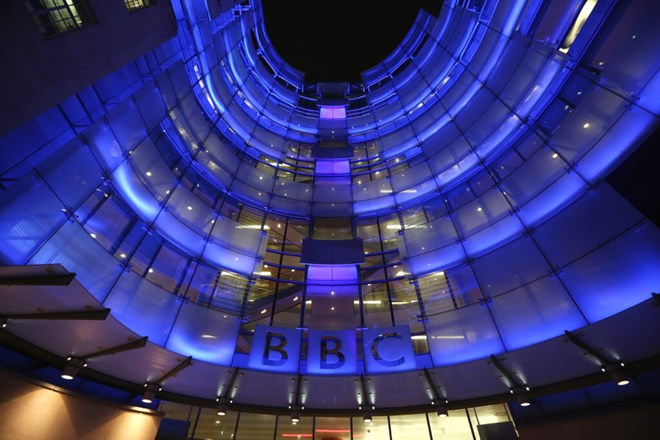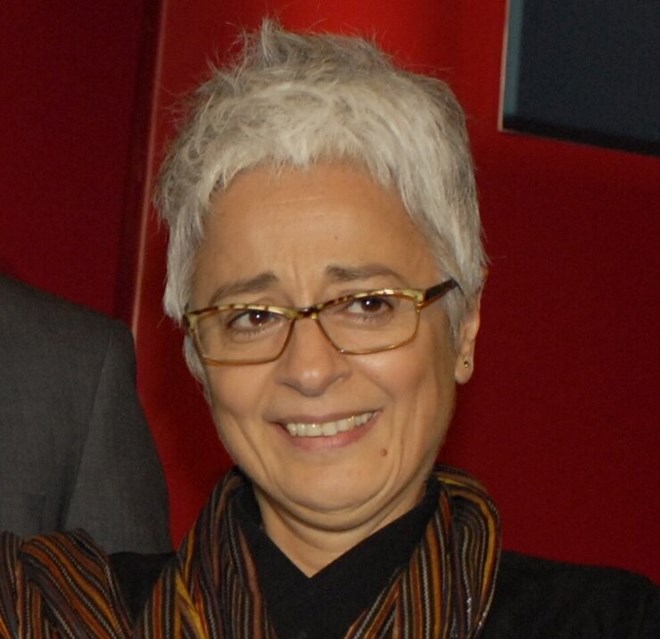
Saturday February 4, 2023

‘DIFFICULT DECISIONS’: The cuts are believed to save the BBC £28.5m (photo: Getty Images)
SHOCKED BBC Africa staff were left stunned after their boss told them they were getting the sack in a Zoom meeting, and then refused to take questions.
The row came after the corporation backtracked over plans to axe UK black local radio shows following a campaign by this newspaper.
A BBC Africa staffer, who spoke on condition of anonymity, told The Voice that the Director of BBC World Service, Liliane Landor, gave a presentation to African staff where many learnt that their programmes would be axed for the first time, and then said she would not take any questions.
advertisements
The source said: “In terms of consultation, they really didn’t consult us on anything at all. They just called for a Zoom meeting and we just find out on the day.“We expected that there will be restructuring but we didn’t know the scale of the closures. It really took us as a surprise.
“The Africa teams, they didn’t even know during the presentation when they were doing the slides [what was coming]. That’s when they saw that their programmes were actually closing. So it was quite a shock to them.
“People also complained about the lack of decency, the way the announcement was made.
“[Landor said] I won’t be able to answer any questions. She just listed all programmes that will be closed, and she will not be taking any questions after that.”
Some cuts have already been made while worried journalists and production workers await news of redeployments, expected this month.
A source said that experienced Africa staff may be offered “work experience” attachments within mainstream BBC to “see if they fit in.”
The Beeb are slashing several services across BBC World with sources saying over 600 jobs would be lost, almost twice the official figure given by the BBC, which is 382.
There are suggestions that over 200 jobs will be lost across Africa, including regular freelancers, when their contracts run out in April, a figure the BBC dispute.
The BBC Africa children’s programme is also being closed down, along with a programme aimed at celebrating empowered women in the continent.

Liliane Landor, Director of the BBC World Service
Some African countries, like Kenya and South Africa, will get one reporter and one camera operator, filing stories to London or Salford in the UK.
Some African countries, like Kenya and South Africa, will get one reporter and one camera operator, filing stories to London or Salford in the UK.
The cuts involve scrapping of BBC Somalia TV, which shut down in January. The TV part of BBC Afrique is also facing the chop.
In a statement, the BBC said it was “totally committed” to bringing “independent journalism” to Africa, but significantly did not pledge a commitment to BBC Africa.
The cuts are believed to save the BBC £28.5 million, about 0.005 per cent of the corporations’ total £5.3 billion annual income. Last year the former culture secretary, Nadine Dorries, froze the licence fee for two years which meant a real-terms budget cut.
The BBC source said that the “rightwing government are moving away from engagement with the continent [of Africa].”
Some of the axed BBC Africa programmes will be moving to digital platforms. The BBC claim they are not cutting back services but modernising as they switch from traditional linear broadcasting on TV and radio.
However, BBC Somalia won’t be going digital because corporation executives ruled that internet coverage in Somalia is not good enough to make it worth their while, and where there is a signal people increasingly get their news from social media like TikTok.
BBC World TV channel is also being ‘merged’ with the UK-based News Channel. However, some question whether this is really a merger, or merely a cover story for scrapping the BBC World channel.
It is understood that some within the BBC are prepared to lose a share of the audience over the next five to ten years on the gamble that their digital strategy means numbers will pick up in the longer term.
BBC News online reported that radio broadcasts in 10 languages will cease, including Arabic, Persian, Chinese and Bengali, but the BBC told The Voice: “We are not closing any of our language services.”
In 2020, BBC Africa staff accused management of institutional racism including being denied career development opportunities, being bullied, and then silenced by an ineffective complaints procedure.
A BBC spokesperson said: “The BBC is totally committed to bringing impartial, independent journalism to people across Africa.
“Audience needs and habits are changing and we know there is huge potential for digital growth across the continent and building deeper engagement with our journalism.
“The BBC is not closing any language services and will continue to serve audiences in 11 African languages on a variety of multimedia platforms, and some radio and TV broadcasts where they serve large audiences.
“It’s not easy changing our output or stopping programming, but we are in tough financial circumstances and have had to make difficult decisions.”
The BBC later pointed out that they first announced our digital first plans last September and have been consulting on them since then with many meetings.
Paul Siegert, the NUJ’s national broadcasting organiser, said: “The cuts to BBC Africa Service are due to the BBC reducing spending on the World Service by £30m and will lead to a total of around 400 posts being cut, some in BBC Africa.
“These cuts are a direct result of the government’s decision to freeze the licence fee for two years.
“The NUJ believes the World Service should be funded directly by the Foreign Office as it was before 2011, and we will continue to campaign for that.
“There are direct benefits for the government through soft power and the influence it gets around the globe via the World Service.”
We will continue to represent our members who work for BBC Africa and face losing their jobs and to ensure they are redeployed elsewhere in the BBC.”